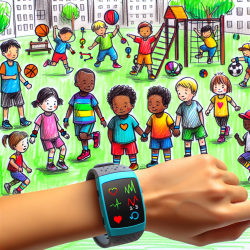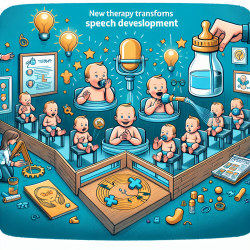As a Special Education Director, ensuring that our therapists are equipped with the necessary skills to address the diverse needs of our student population is paramount. One of the critical areas that require attention is transcultural competence, especially when dealing with immigrant communities. Drawing insights from the research article "Primary Care Networks and Eritrean Immigrants’ Experiences with Health Care Professionals in Switzerland: A Qualitative Approach," we can identify several actionable steps to improve our therapists' interactions with students from diverse cultural backgrounds.
Understanding Primary Care Networks
The study conducted by Wallimann and Balthasar (2019) highlights the primary care networks of Eritrean immigrants in Switzerland, emphasizing the informal and formal support systems they rely on. These networks include family, friends, volunteers, social workers, primary care physicians, hospitals, and organizations like Caritas and the Swiss Red Cross. Understanding these networks can help therapists recognize the broader support systems that their students might be relying on.
Key Lessons for Practice
Based on the participants' experiences, the study identifies six key lessons for health care professionals, which can be adapted to improve our therapists' practices:
- Understanding the Health Care System: It takes time for immigrants to adapt to a new health care system. Providing clear information and conducting courses in the students' native language can facilitate this process.
- Clear Explanations: Detailed explanations about procedures, treatments, and expectations are crucial. This helps in building trust and ensuring cooperation.
- Overcoming Language Barriers: Utilizing intercultural interpreters and supporting communication with visual aids or translated documents can significantly improve understanding.
- Gender Sensitivity: Recognizing the importance of gender in medical interactions is essential. For example, having female therapists for female students, especially in sensitive areas like gynecology, can make a significant difference.
- Mental Health Awareness: Mental health is often a taboo subject. Creating a safe environment where students feel comfortable discussing their mental health issues is vital.
- Individual Differences: Acknowledging that individuals from the same country can have different cultural and social backgrounds is important. Tailoring approaches to each student's unique context is necessary.
Implementing These Lessons in Online Therapy
To implement these lessons effectively, our therapists can:
- Attend training sessions on transcultural competence and the specific needs of immigrant communities.
- Use intercultural interpreters during online therapy sessions to bridge language gaps.
- Develop clear, detailed explanations for procedures and treatments, using visual aids when necessary.
- Be mindful of gender preferences and sensitivities during therapy sessions.
- Create a supportive environment for discussing mental health issues, reducing stigma, and encouraging open communication.
- Recognize and respect the individual differences among students, tailoring therapy approaches to their unique backgrounds and experiences.
By integrating these practices, our therapists can provide more effective and culturally sensitive care to our diverse student population, ensuring better outcomes and fostering a more inclusive environment. To read the original research paper, please follow this link:
Primary Care Networks and Eritrean Immigrants’ Experiences with Health Care Professionals in Switzerland: A Qualitative Approach.










